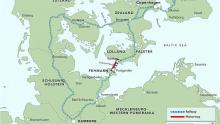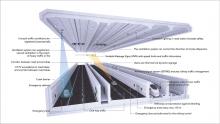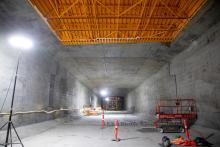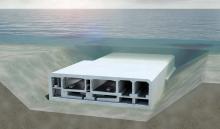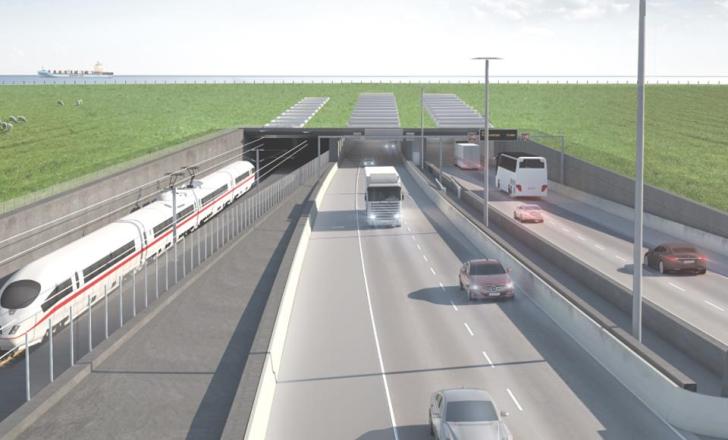
The European Union has allocated €537.53 million (US$567.35 million) to the Fehmarn Belt Link in Denmark up to 2027, according to Denmark’s ministry of transport. The time
The Fehmarn Belt is a strait between the German island of Fehmarn and the Danish island of Lolland. The money underlines the importance of the 17.6km Fehmarnbelt tunnel project not only for the Danish road network but the entire European transport network, said Trine Bramsen, minister of transport.
When finished it will be the longest ever constructed, surpassing the 13.5km Marmaray Tunnel of the Bosphorus in Turkey. It will consist of 79 standard 217m-long elements around 10m high with two highway tubes, one emergency tube and two rail tubes.
There will be 10 service elements, each 85.7m-long but both wider and higher and with a subfloor to house technical and servicing equipment. The deepest section of the Fehmarn Belt Trench, into which the tunnel elements will be laid, will be 35m.
The tunnel will replace a ferry service from Rødby and Puttgarden. The project’s approval process had been bogged down over environmental issues, especially within the German state of Schleswig-Holstein in which the southern end of 18km immersed tunnel will surface.
Danish company Femern is responsible for construction of the link. A tunnel element fabrication yard and a works harbour has been built in Rødbyhavn, as well as a tunnel portal on Lolland.
Work is progressing at a cement facility at the Rødbyhavn construction site on the Danish island of Lolland. When finished, the factory will produce concrete undersea tunnel elements for the project.
The Lolland factory will cast all 89 of the project’s 217m-long concrete tunnel segments with each segments weighing more than 73,000 tonnes. The halls of the factory will have strict climate control, ensuring the segments harden evenly.
The first of the six production lines is expected to be ready by the end of the year, with the first segments expected to be towed by barge to their respective immersion points next year.
The road and rail tunnel’s developer is Femern A/S, while the main contractor on the €10 billion project is Fehmarn Link Contractors JV.
In June last year, SBM Mineral Processing was awarded the biggest contract in the company’s history – to supply six concrete mixing plants that will produce around 3 million cubic metres of concrete.


